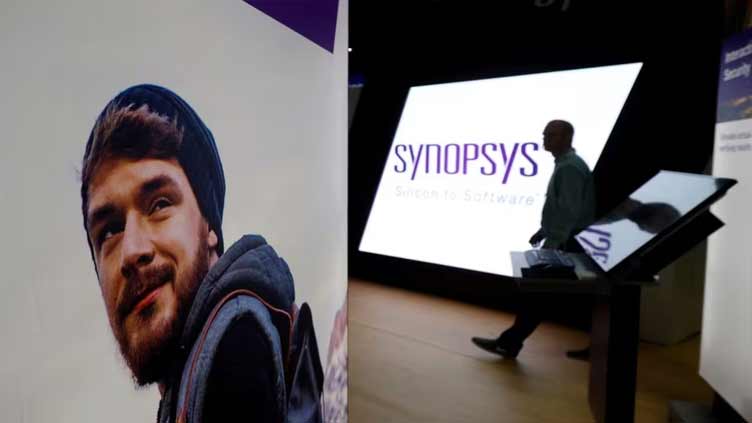Synopsys, Microsoft team up for a chip-design assistant

Technology
Chip design is one of the hardest tasks in the technology industry
(Reuters) - Microsoft has mostly pitched its "Copilot" as a way to help finish up lines of computer code or quickly summarize a messy email inbox. But Synopsys (SNPS.O) on Wednesday said it has worked with Microsoft to create its own Copilot to help with designing computer chips.
Chip design is one of the hardest tasks in the technology industry because billions of transistors - tiny on-off switches - must be precisely arranged on a piece of silicon just a few centimeters wide. Designing a chip typically costs hundreds of millions of dollars and takes several years, even with an army of engineers.
Synopsys is the largest maker of software used in that process and said Wednesday that it used Microsoft's Azure OpenAI system to create its own Copilot for use with its tools. The early stages of designing a complex chip involve engineers describing how the chip should work in a language that resembles software programming code.
Synopsys trained the system on huge troves of data it has accumulated over decades in business to help with that. Shankar Krishnamoorthy, general manager of the design automation group at Synopsys, said the primary objective was to make the system accurate.
If an AI bot "is writing essays or Shakespeare or poetry, you can have a 10% to 15% error and your consumer would know the difference and still be wowed by it." Krishnamoorthy said. "But if you're not generating (chip design work) that is over 99.9% accurate, you're introducing a bug in your chip, which is worth hundreds of millions of dollars."
Fixing bugs is one of the lengthiest and costliest parts of the chip design process. Microsoft said it has already started to test the Synopsys system with its own chip design teams, which on Wednesday unveiled the company's first in-house data center chips.
"This technology not only helps us address issues early on, but also reduces the cost of fixing issues at a later stage," Erik Berg, principal engineer in the chip design verification and validation team at Microsoft, said in a blog post.


